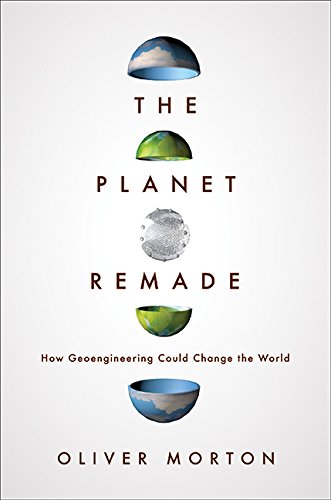KIRKUS REVIEW
Economist briefings editor Morton (Eating the Sun: How Plants Power the Planet, 2008, etc.) offers a calm, rational discussion of deliberate technological interventions to cool the planet’s climate system.
Once dismissed as the province of cranks, geoengineering approaches to climate change have gained new respectability. The first international academic conference on research in the field was held in Berlin in 2014, and both British and American science academies have issued reports. Even so, as the author writes, the notion of global climate interventions “still strikes many as truly wild.” Despite skepticism, a small coterie of top scientists, including Harvard physicist David Keith (A Case for Climate Engineering, 2013), continues to explore different strategies to offset warming, from cultivating photosynthetic plankton to spraying sulfates into the upper atmosphere to block sunlight. In a thoughtful, complex, and sometimes-technical overview of “the promise and attendant perils of deliberately modifying climate,” the author argues that this field “should be taken considerably more seriously.” Though it may not necessarily offer a solution, it can provide a way to reduce harm from climate change. For instance, technology could be used to slow warming while better methods are developed to mitigate carbon emissions. Mindful that the risks are not well-understood, Morton describes the science behind the various climate interventions now being studied, including one physicist’s work on machines capable of sucking carbon dioxide out of the atmosphere. He covers the history of climate interventions—notably, volcanic eruptions spewing ash and dust into the atmosphere—concerns over possible harms (such as human engineering replacing “the authentic world with a fake one”), and the danger that even talking about technological interventions will lead to less climate mitigation.
An important account of cutting-edge research that will fascinate serious readers and demand the attention of policymakers.

Thanks...
ReplyDelete3D Prototype Printing Services